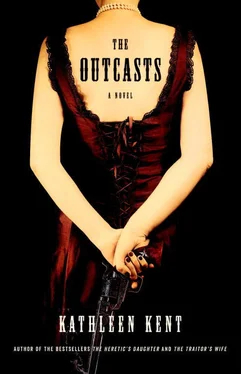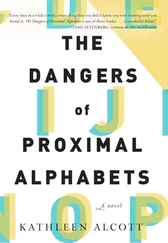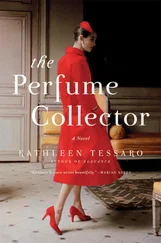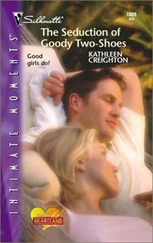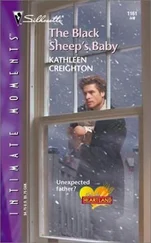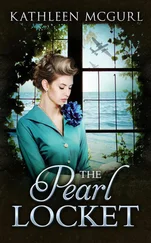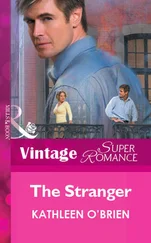One evening she overheard her father and husband speaking in whispered, conspiratorial tones, saying that, for the infant’s own safety, it should be given to a nurse to be raised, and that she, Lucinda, might do better placed again in the care of a “curative” institution.
A month before she was to give birth, she left her father’s house accompanied by a Mexican woman who had experience as a midwife, and they traveled north to a place far enough, and isolated enough, that Lucinda would not be reclaimed. She had made arrangements to be taken into a home for unmarried mothers and she gave birth on a gentle spring evening, without much pain or any dangerous complications. They had advised her to look away when the baby was pulled from between her legs, as it would make the parting easier. But she did look, and it was a healthy, squalling girl still slick from her womb, and she had felt a clenching ache in her breasts, needing to be relieved of their burden. She watched the nurses clean and swaddle the baby and when they began to carry her from the room, her eyes opened and fixed on Lucinda’s with a steady, ancient ownership. Lucinda reached her arm out, fingers extended, and the midwife frowned but let Lucinda briefly touch the downy surface of the baby’s head.
For hours she listened for the sound of an infant crying in the nursery, but she heard nothing more than the restless shifting of the still-pregnant women beside her. She left after four days, assured repeatedly by the nurses that the baby would be cared for and placed with suitable parents.
Before traveling, she had bound up her chest to stop her breasts from leaking, but when she stepped onto the coach, the top of her bodice was wet, as though soaked from tears.
Now Lucinda eased her legs over the day couch and sat up. She felt faint for only a moment and, after taking a few more breaths, stood. She reached for the bottle of laudanum on the table, walked to the wash station, and poured the contents into the water pitcher. She straightened her hair, pinched her cheeks for color, and walked from the room to the balcony overlooking the downstairs parlor, where she observed Bill in a gentleman’s chair, Tartine draped across his lap. The whore was whispering into his ear, and when she looked over her shoulder at Lucinda, she narrowed her eyes and curled her lips in a triumphant smile.
On the steamer’s deck, soon after boarding, Nate heard a horse screaming and the pounding of terrified hooves down the boat’s open corridor. He was certain it was the big bay breaking loose, but it was a speckled roan, mad with terror and on a collision course with him against the railing. He ducked, covering his head with his arms, and felt the wind from the horse as it leaped over the railing, and a second later he heard the splash as it fell into the Gulf.
He grabbed the deck rail, looking for the horse’s head to appear, and soon after saw the struggling animal swimming strongly towards the nearest point of land.
Passengers ran onto the deck to watch, and the captain pointed and yelled, “He’s making for Pelican Island!”
For forty-five minutes they watched the horse swimming against the tide, and often the body would sink until only the tips of the ears and the nostrils emerged to signal that the animal had not yet drowned.
He looked through the scope of the Whitworth, following its progress, and one of the passengers mistook it as an aim for a killing.
“Shoot it,” the man had urged, laughing. “Shoot it!”
A hundred feet out from the island beach the head disappeared under the waves and the man continued his barking laughter, telling Nate that he had missed a fine chance to test his rifle.
Nate pressed the scope closer to his eye, scanning the shoreline for signs of the horse, and when he saw flickers of white light streaking his vision, he realized he had been holding his breath. He thought his eyes were mistaken when he saw two small triangles appear from the waves and then the horse’s head rear from the water. With a great intake of air, the horse simply walked up along the sloping sea floor until it came to stand on the beach, coughing and breathing in great sucking gasps.
A jubilant cry rose up from all the other passengers except the barking man, and Nate watched the island through the scope until the horse was lost from view. And then he handed the rifle to a surprised passenger and with both hands pummeled the barking man until he fell to the deck. He hit the man savagely and repeatedly, feeling bones and flesh breaking under his fists; feeling, too, a momentary easing of loss, his grief for Dr. Tom oozing out from some deep place within, like the blood that seeped through the split skin of his knuckles. He kept hitting the man, beating back his uncertainty as to his mission, until the captain and two passengers pulled him away.
Afterwards, he sat against the railing looking at the Gulf sky, the gray clouds mushrooming together in storm formation. He thought about the roan, believing that he’d been meant to witness the horse’s struggle. The event recalled to him the thinking of a horse, which is neither reasoned nor reasoning, but steadfast and untiring against all contrary tides. He knew that a horse, if stubborn enough, was capable of running through prickly wire; it would tangle itself until it was shredded hide to bone before abandoning its determined run.
If the roan, like a man, had pondered on and fretted over the difficulty of swimming a half mile to a small island, it most likely would have given up, let the water take it, its churning thoughts working as surely as weights around its legs.
Nate had committed to this path, and he would not think beyond the length of the steps that pointed towards the ultimate capture, or killing, of William Estes McGill. He would not defeat himself with complicated strategies or undo his resolve with worrying over the difficulty of finding his way through a city where he had never been before, where he had no contacts or friends.
He would, like the roan, point his nose to his destination and work muscle and bone to find himself on home ground again.
Lucinda sat in the carriage across from Tartine, staring out the window. She could feel the whore’s eyes on her, though, and knew that if she glanced at the girl’s face, she’d see her mouth twisted into the same smirking grin she’d carried since spending an entire night with Bill. Tartine crossed her legs as a man would, one ankle over a knee, flashing her red-and-white stockings like a challenge.
Hattie had called them both into her private parlor that morning and told them that Lucinda’s fish had requested that they both go to his house—a mansion on First Street—that afternoon. It was an unusual request, Hattie admitted; one, the madam insinuated, that hinted at the unpleasantness of the encounter.
“Unpleasant for you,” Hattie had said, looking pointedly at Lucinda.
As they left the parlor, Tartine had whispered into Lucinda’s ear, “He will want for you to scream quite a lot.”
The fish had not been frightened by Lucinda’s fit; in fact, he had specified to Hattie that Lucinda should replay her helpless state in his presence, wearing the same modest schoolteacher’s dress she had worn the first evening. She was to remain passive and feign unconsciousness while he worked to revive and reanimate her through “treatments” of his own devising.
The carriage bounced hard over a break in the road and Lucinda looked down at the carpetbag at Tartine’s feet, revisiting in her mind its contents: a razor strop and belts of various sizes; rigid paddles, deeply scored; and a pig’s bladder with a long, perforated tube attached. She dabbed at the sweat on her upper lip, and her eyes met Tartine’s gaze.
Читать дальше
